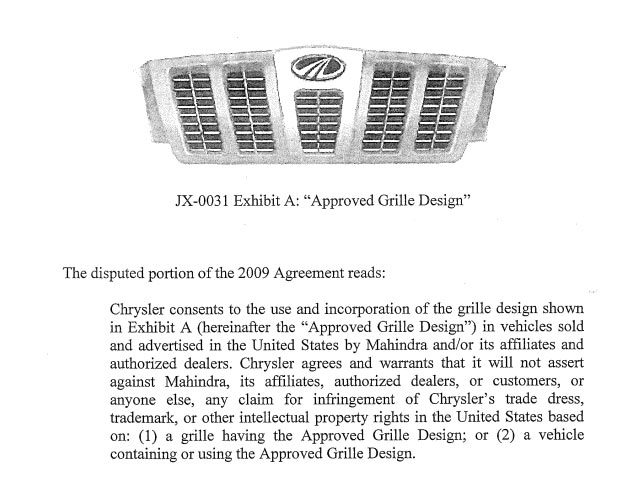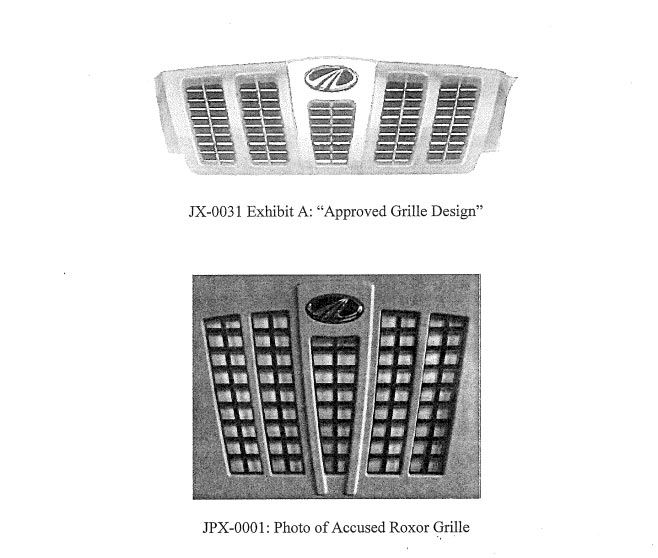The legal battle between Fiat Chrysler Automobiles and Mahindra is far from over, but the Auburn Hills-based automaker has scored a victory against Mahindra and its Jeep-like Roxor.
In an initial determination, the United States International Trade Commission found that FCA is “not contractually barred from enforcing its intellectual property” rights against Mahindra.
In a 20 page document which laid out the case, the commission revealed the fight between the two companies has been going on since FCA’s predecessor, Chrysler Group LLC, learned Mahindra was preparing to introduce the Scorpio in the United States in 2008. Upon learning this, Chrysler reached out to Mahindra as they believed the Scorpio’s grille was “confusingly similar to a Jeep brand vehicle grille.” Chrysler requested that Mahindra change the grille on the Scorpio and the two companies eventually came to an agreement on an “approved grille design” after Chrysler initially rejected two other design proposals.
According to the 2009 agreement, Chrysler promised it wouldn’t go after Mahindra for any “claim for infringement of Chrysler’s trade dress, trademark, or other intellectual property rights in the United States” as long as the company stuck with the approved grille design. Despite this, Mahindra never launched the Scorpio in the United States.
While the Scorpio was a no-show, Mahindra launched the Roxor last year. FCA objected to this as the SUV had an “overall exterior appearance” similar to the Jeep CJ and Wrangler. The company also took issue with the model’s Jeep-like grille which wasn’t the same as the approved grille design from 2009.
The issue was eventually brought up with the United States International Trade Commission and they determined that the 2009 agreement, which featured an image of the approved grille design, removed “any ambiguity about the specific grille design that Chrysler permitted Mahindra to use.” The commission also noted the agreement did “not contain any language allowing for variations on the grille design.”
Mahindra attempted to get around this, but the commission said their arguments were “not persuasive because there is no textual indication in the 2009 agreement that might have permitted adaptations of the pictured grille design.” They went on to say the meaning of the original agreement was “clear and unambiguous.”
As a result, the commission found the Roxor grille has a different shape, different proportions and different design details than the approved grille design from 2009. The designer of the Roxor’s grille also testified that the “perimeter, aspect ratio, slot aspect ratio, logo proportion, and finish are all different” than what was approved nearly a decade ago.
In a short statement, the automaker told us “FCA US is pleased that the Administrative Law Judge agreed that there is no merit to Mahindra’s position in this matter. We look forward to moving to the next stage of the case and showing that the Roxor infringes on the iconic trade dress and trademarks of the Jeep brand.”
While the United States International Trade Commission handed a win to FCA, the Roxor isn’t going away anytime soon. The Detroit Free Press reports the model will be shown at the North American International Auto Show next week and Mahindra has managed to sell approximately 3,000 Roxors in the United States and Canada so far.







